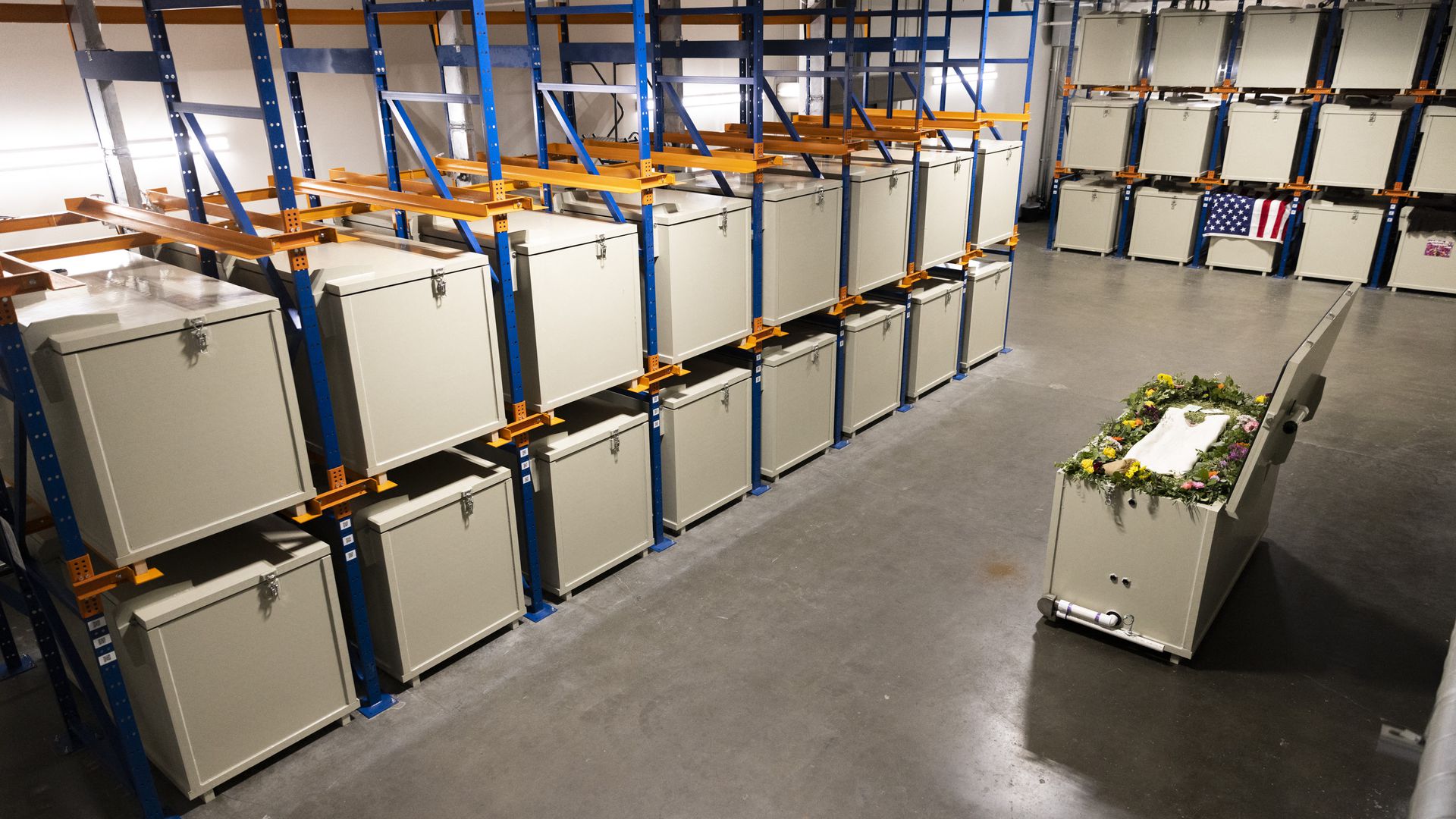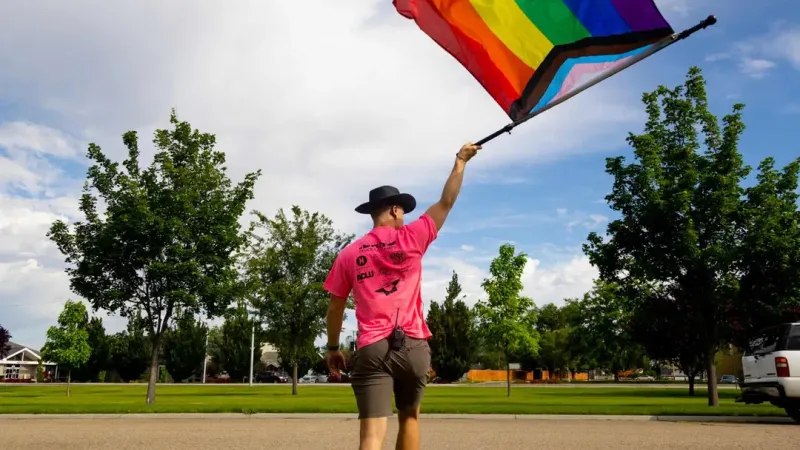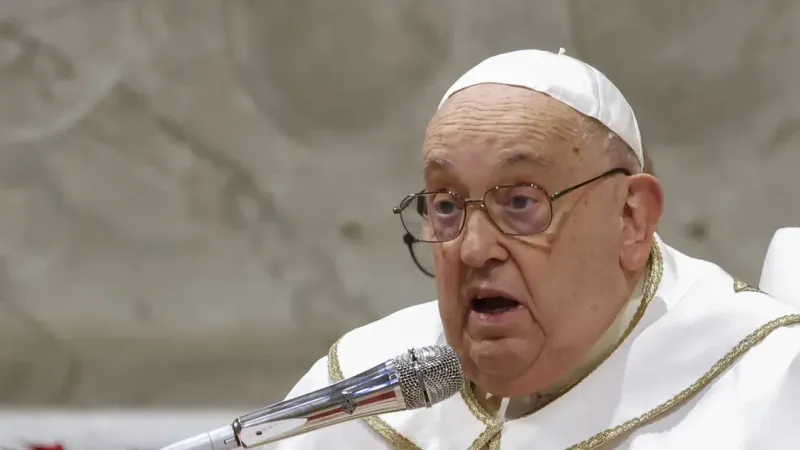N.Y. Gov. Hochul Legalizes Human Composting After Death
New York Governor Kathy Hochul on Saturday signed a law legalizing "human composting," or the natural organic reduction of the deceased, making N.Y. the sixth state in the nation to approve eco-friendly burial services after Wash., Colo., Ore., Vt, and Calif.

Facts
- New York Governor Kathy Hochul on Saturday signed a law legalizing "human composting," or the natural organic reduction of the deceased, making N.Y. the sixth state in the nation to approve eco-friendly burial services after Wash., Colo., Ore., Vt, and Calif.
- The process puts the deceased body in a reusable container with organic plant materials — e.g. wood chips, alfalfa, and straw — from which natural microbes break down the body. It takes roughly a month, resulting in about 36 bags of nutrient-dense soil that can be used for planting trees or land conservation.
- The law requires human remains to be handled by a certified reduction facility and stored in a well-ventilated location that does not contain battery packs or radioactive devices.
- For urban areas of N.Y., human composting provides a green and more natural alternative to traditional burial. Michelle Menter, manager at the Greensprings Natural Cemetery Preserve, said citizens should support anything "to turn people away from concrete liners and fancy caskets and embalming."
- The next steps for the Democratic Governor include introducing and implementing regulations for human composting and assisting cemeteries with the requirements necessary to offer these types of services.
- While concerns over costs have arisen, the firm Recompose — the owners of the world's first human composting facility — say its $7K fee is comparable to traditional burial methods. According to the National Funeral Directors Association, the average 2021 funeral service and burial and cremation service cost about $7.8K and $6.9K, respectively.
Sources: New York Post, FOX News, Guardian, Time, Axios, and BBC News.
Narratives
- Narrative A, as provided by Crisis. This is another law that strips the human body of its innate metaphysical aspects. Even before the Christian Church, ancient civilizations understood the idea of the human soul to some extent. Only very recently have governments decided to forego these ideas and treat the deceased as mere pieces of garbage to be carelessly disposed of. This is immoral on religious and humanist grounds and should be vehemently opposed.
- Narrative B, as provided by GVWire. Eco-friendly burial is a positive move for those who care about the environment. This act of devotion to future generations will not contribute to greenhouse gas emissions but instead will help to grow trees and grasses that capture carbon dioxide. Those who choose this alternative can save one metric ton of carbon from entering the environment for a similar or cheaper cost than a traditional burial.






